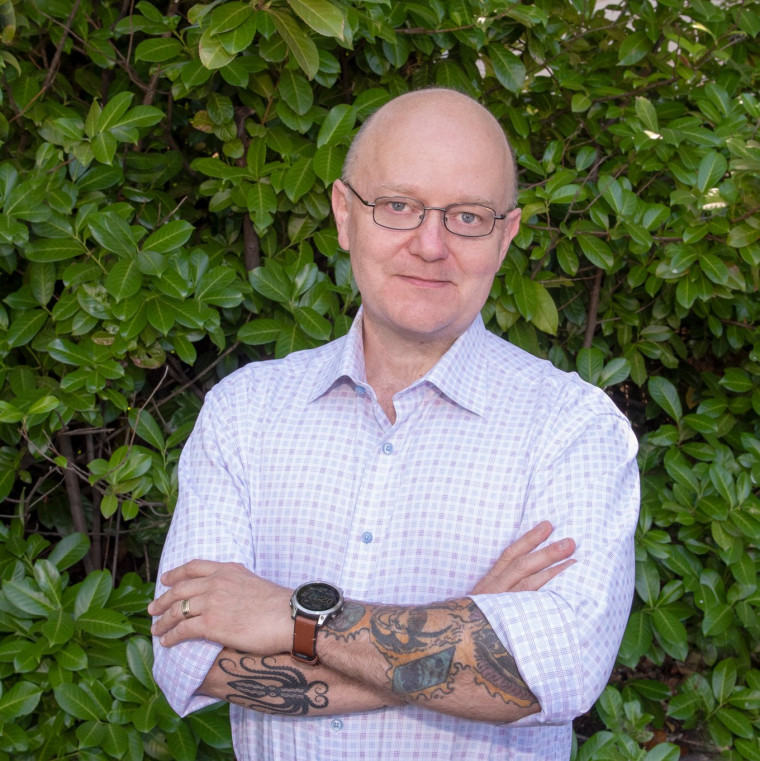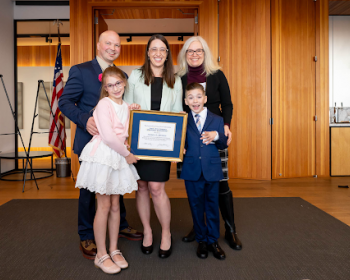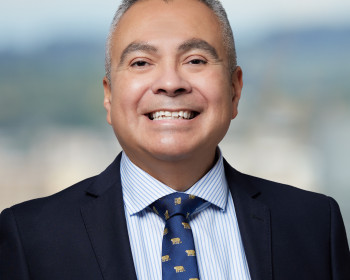Get to Know Professor Bronson James: A Conversation on Law and Teaching
Professor Bronson James ’03, Oregon Supreme Court Justice and adjunct professor at Lewis & Clark Law School, shares his diverse legal experiences and teaching passion, emphasizing the importance of encouraging critical thinking in law students from an early stage in their education.
Open gallery

Oregon Supreme Court Justice and Adjunct Professor Bronson James ’03 is a distinguished member of the legal community with a rich background in both practice and academia. Professor James recently shared his remarkable journey through the legal profession and how those experiences profoundly influenced his approach to teaching.
—
Can you share a little bit about yourself?
Sure! I’ve had quite a diverse career in the legal field on my journey to becoming a justice on the Oregon Supreme Court. I’m proud to be a graduate of Reed College and Lewis & Clark Law School. I served as a trial judge on the Multnomah County Circuit Court, practiced as an appellate public defender in the Oregon Office of Public Defense Services, and represented injured plaintiffs and criminal defendants at my firm. In 2023, I was appointed to the Supreme Court by then-Governor Kate Brown and currently chair the Oregon Supreme Court Council on Inclusion and Fairness.
In addition to my legal work, I’m actively involved in coaching mock trials through the Classroom Law Project and serve on Oregon’s Ad Hoc Committee on Unconscious Bias and the Judicial Leadership and Education Committee.
How did you come to be an adjunct professor at L&C?
Teaching at Lewis & Clark came about through conversations with John Parry, the Associate Dean of Faculty. It felt like a natural fit, and I’ve always had a passion for teaching.
What were you most looking forward to with this role before you started?
I was really looking forward to engaging with law students and hearing their perspectives. Interacting with people who haven’t been immersed in the legal field for decades is refreshing. Law students bring a unique “quasi-outsider” viewpoint that is incredibly valuable.
How does your experience shape the way you approach teaching?
My experience has shown me that, as lawyers progress in their careers, usually around their tenth year of practice, they begin to question and critique the law more effectively. It is essential to encourage law students to embark on this path of critical thinking and analysis earlier in their educational journey. So, I approach teaching with the goal of fostering that ability to critique the law effectively from an earlier stage.
How has your experience been teaching the class thus far?
Teaching has been a fantastic experience for me. I genuinely love it! Engaging with students and sharing my insights has been incredibly rewarding. I appreciate the opportunity to contribute to the development of future lawyers, and I’m excited about the positive impact I can have on the next generation of legal professionals.
–
Professor Bronson James ’03 has been teaching for two years and currently teaches Evidence and Oregon Constitutional Law at Lewis & Clark Law School. His expertise in these specialized fields brings a wealth of knowledge in his inaugural year at L&C.
Law Communications is located in room 304 of Legal Research Center (LRC) on the law Campus.
MSC: 51
email jasbury@lclark.edu
voice 503-768-6605
Cell: 626-676-7923
Assistant Dean,
Communications and External Relations, Law School
Judy Asbury
Law Communications
Lewis & Clark Law School
10101 S. Terwilliger Boulevard MSC 51
Portland OR 97219

